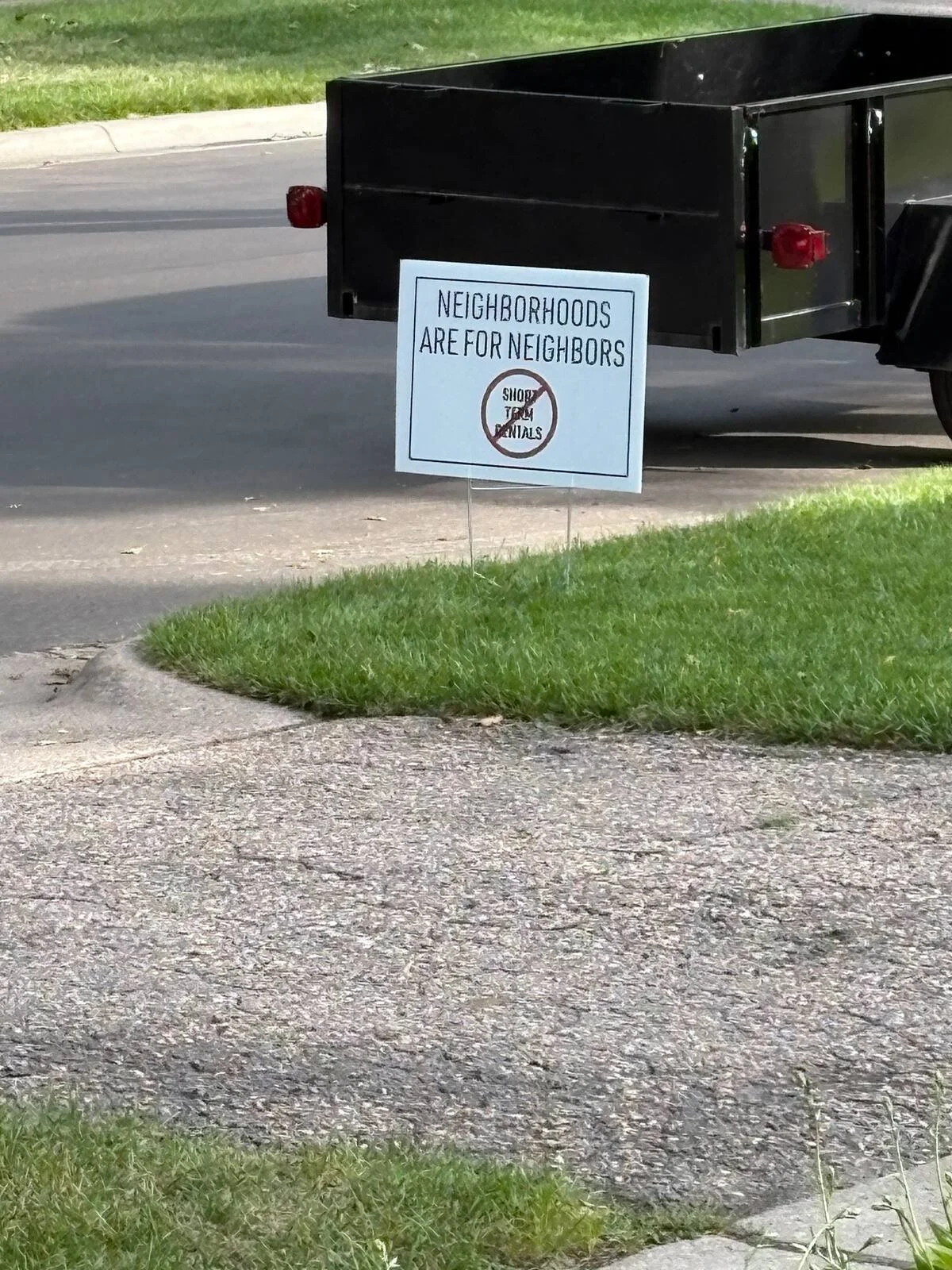Reflections From a Short-Term Rental Host: 📚Why Regulation Matters More Than Prohibition⚖️
Right now, we’re up against the very real possibility of a short-term rental ban in Wayzata. And if I’m being honest, it’s exhausting. As hosts, we constantly feel the scrutiny — as if we’re the problem in our neighborhoods, the reason for every complaint about parking or noise. But when I look at the reality of who we host and what our homes bring to this community, that narrative just doesn’t add up.
For our homes in Wayzata, almost 60% of our guests are family members of local residents. These aren’t strangers parachuting in from across the globe. They’re grandparents visiting grandchildren, parents supporting adult kids, families gathering for weddings, graduations, or tough life moments. They don’t want to split up into separate hotel rooms. They want to stay together, under one roof, where they can share meals, laugh late into the night, and feel like they’re home.
We’ve also welcomed people in transition — families between homes, or those displaced by floods and fires. In those moments, a short-term rental isn’t a luxury, it’s a lifeline. And yes, our guests sometimes park on the street, but they also eat at local restaurants, shop at small boutiques, grab coffee from neighborhood cafes, and spend real money right here in town. Their presence strengthens the local economy — not the other way around.
What’s frustrating is that instead of seeing the good, councils often jump straight to prohibition. But let’s be real: short-term rentals exist in every community. Plymouth recognized this and chose to regulate thoughtfully rather than ban outright. They imposed a tax that generates revenue for the city while still giving families the flexibility and comfort STRs provide.
And there are legal precedents showing why prohibition isn’t the answer. In Austin, a federal court struck down parts of the city’s STR ordinance as unconstitutional. In Sumner County, Tennessee, a ban was overturned for unfairly restricting property rights. Courts in New Orleans and even McCall, Idaho, have weighed in as well, making it clear that municipalities need to regulate reasonably, not eliminate outright. These cases show that bans expose cities to legal risk — while thoughtful regulation protects both community interests and property owners’ rights.
Wayzata, being smaller, already has the ability to monitor and identify operators. That makes it even easier to take a balanced approach — creating thoughtful regulations, putting a lodging tax in place, and holding hosts accountable without eliminating an option that so many local families depend on.
Because if STRs disappear, property owners will still need income to keep their homes. For some, that means losing the flexibility to use their homes when they want or need. Many owners snowbird to warmer climates in the winter and rely on short-term rental income to make it work. Without that option, they may be forced to sell — and that means fewer homes available for people who want to come back and enjoy a Minnesota summer, or for empty nesters who want to return to be close to their families.
Meanwhile, the real disruption to housing isn’t coming from small operators like us. It’s coming from corporations like Vanguard and BlackRock buying up entire blocks, neighborhoods, even towns. They’re the ones consolidating property and taking ownership away from families. Independent hosts, on the other hand, keep homes in the hands of locals.
I don’t claim hosting is perfect. There are always challenges, and yes, there are operators who cut corners. But banning isn’t the answer. Regulation is. Thoughtful, balanced, community-focused regulation — the kind that recognizes STRs as part of the fabric of modern life and ensures they benefit the town instead of burdening it.
At the end of the day, this isn’t just a business for me. It’s about people. It’s about giving families a way to stay connected, supporting local businesses, and protecting the right to use our homes in ways that serve the community rather than strip them away.

